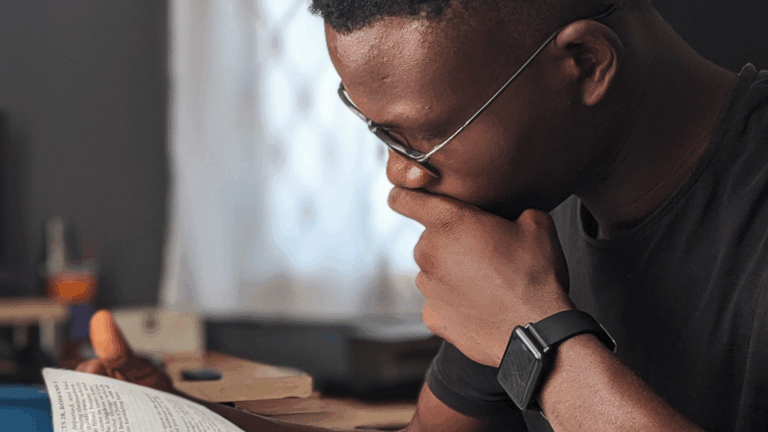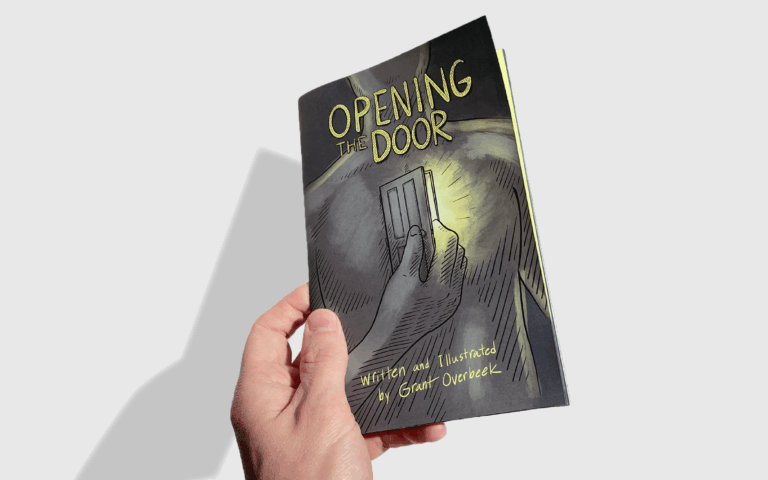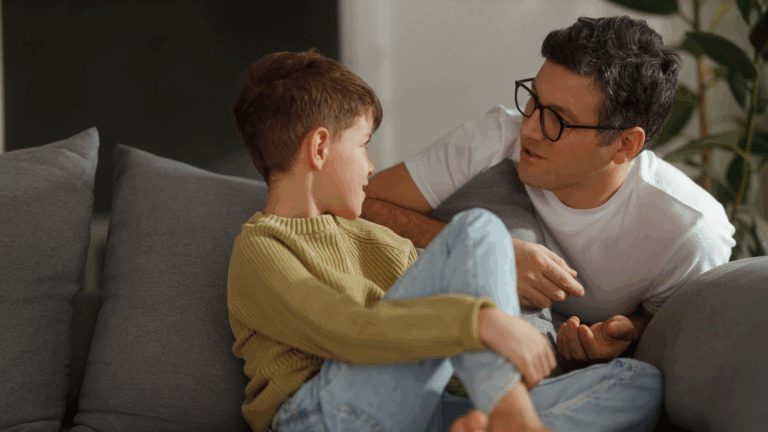Originally posted at The Center for Faith, Sexuality, & Gender
I was watching a college football game with my family over Christmas break. We were cheering on my brother’s alma mater and enjoying a couple of drinks before we went out to celebrate his birthday. I disinterestedly rotated between watching commercials (now novel for me thanks to Netflix), checking my phone, and keeping track of the score. Then it hit me. That feeling I’ve felt far too often over the past twenty-seven years. Shame. I noticed an attractive player on one of the teams, and then a painful void opened up in my gut.
I didn’t lust over this man. I didn’t entertain the attraction in any way. I didn’t do anything more than notice that he was a good-looking guy. But for the first twenty years of my life, I believed that being gay—merely experiencing same-sex attraction—was bad.*** I believed that I should feel shame and embarrassment each time I find myself attracted to another man. Because I believed those things for twenty years, my automatic reaction to finding the football player attractive was shame.
A quick note about shame versus guilt. Clinical mental health counselors like me make a point to distinguish between these two words. Guilt is feeling bad because we did something wrong. Shame is believing that we are totally, completely, beyond-redemption bad to our core. Guilt is a just response to disobeying God. Shame is an emotion stoked by Satan that convinces us to disregard the imago dei in each of us. When I noticed the football player was attractive, I did not sin and did not feel guilt. But Satan has spent a lifetime conspiring against me, often through the words of other Christians, to teach me that because I am gay, I am totally, completely, beyond-redemption bad. And so I felt shame.
So I did what my therapist and I have practiced before. I texted a safe person. Shared with her everything I was feeling, trying to shake the shame. She responded with what I’ve heard a hundred times: “There’s nothing you need to feel ashamed about. Nothing you need to be embarrassed about. You’re just as normal as the rest of us.”
Intellectually, I know she’s right, but I don’t think my automatic reactions to my attractions will ever be anything but shame. I don’t believe her words on an emotional level. Then as I sat on the couch trying not to look overwhelmed, shame turned to sadness. My heart looked to the future and anticipated a lifetime of feeling shame for something I did not choose and could not change.
This part of my experience is one of the hardest things for many straight people to understand, and they’ll have a hard time loving me well without that understanding. Under the homophobia many gay people still experience, a Church that still doesn’t know how to help people like me, the baggage I’ve worked through in counseling, and the loneliness I feel as a celibate without meaningful family—underneath all of that, this shame continues to persist despite my efforts to care for myself. Every time I notice an attractive person, my automatic reaction is to believe that I am less worthy of the love of God and my friends. My automatic reaction is to assume there is something I need to fix, because I am not good enough.
Empathy with this will go a long way for the pastor who wants to care for gay people well. Despite what I sometimes hear from married pastors, our attractions aren’t the same. They say, “Our circumstances aren’t really that different. There are seven billion people in the world you can’t have sex with. There are seven billion people minus one that I can’t have sex with.” But our experiences of our desires are different. My attractions cause me shame and insecurity in ways the attractions of the average straight person probably don’t. Those pastors didn’t grow up hearing that they were disgusting and dirty for the attractions that came naturally to them.
Even worse, there has been a resurgence of Christian leaders teaching that merely experiencing same-sex attraction is a sin. That I should feel guilty about my involuntary attractions. That every day I should feel guilt for something I did not choose and cannot change. And that I should not rest from trying to eliminate these attractions through various forms of sexual orientation change efforts. Don’t get me wrong. I continue to believe that experiencing same-sex attraction is a result of the Fall, a brokenness—it is not how God first imagined me to be. But I do not sin by being tempted with same-sex attraction. I only sin when I say “yes” in word, volitional thought, or deed to the invitation to lust. Plus, there is no proven combination of prayer and counseling and weekend retreats for changing a person’s attractions. The false theology that merely experiencing same-sex attraction is a sin must stop.
I am already assaulted daily by Satan with the lie that I am less worthy of God’s love and the love of others because of something I did not choose and cannot change. My heart cannot bear Christian leaders heaping shame on top of that by continuing to promote false theology. So if you love gay people and want to help protect people like me from the destructive results of Satan’s lies and misguided Christian leaders’ shame, join me in condemning that false theology.
Then go find the gay people in your life. Tell them that God loves them just the way they are. That God isn’t surprised or disgusted by their attractions. That they have nothing to be ashamed of. That they are just as worthy of God’s love. Tell them that their attractions don’t have to change to be a faithful, full member of God’s family. And then hold them as they cry.
***I use the word “gay” here and throughout the post as a general, catch-all term for people who are attracted to people of the same sex, whether they be gay, lesbian, or bisexual. I don’t mean to communicate anything about their theological beliefs or what kind of relationships they are seeking by using that word. It only means “boys who like boys” or “girls who like girls.” Wise Christians disagree about what words Christians should use to describe their sexuality. To explore that topic more, read our series titled “Why Say Gay?”






Jesse Hewitt
"Don’t get me wrong. I continue to believe that experiencing same-sex attraction is a result of the Fall, a brokenness—it is not how God first imagined me to be"
As a gay man I can not tell you how harmful and offensive I find this logic. What you offer to people is not love, but a withholding love. Jesus’ love is not conditional. I was made in his image just as all of us were, INCLUDING my homosexuality. God imagined me just as I am and I am so grateful to the Methodist community in Nashville for finally helping me understand that.
I spent many years unlearning the lies that this world, especially the Church, has told me. What I know to be truth is that God loves me, exactly as I am. He has blessed my relationship with another man and has changed the hearts of our families. I hope in enough time he will change your heart as well.
Pieter Valk
I agree: When God first imagined us, He imagined a version of us that perfectly captured and displayed a fraction of God. But the world today is not how God first imagined it. We are not how God first imagined us. I wish we were, and I cannot wait for the New Heavens and New Earth where God will bring us to a state of perfection even beyond how He first imagined us. But we are not that way today. Blindness, deafness, hereditary diabetes—all of us are affected by the brokeness of this world. None of us are born how God first imagined us to be. We were all broken at a genetic level before birth, formed imperfectly in the womb, and quickly injured by the broken world we were born into. But even in a world where we are broken, the people around us are broken, and everything around us is broken, that image of God in us remains—even if it is blemished by that brokenness. Nothing is untouched by the Fall, but glimpses of God can be found in every person.
Jesse Hewitt
Hi Pieter, thanks for responding, but I don’t think we are agreeing at all.
I don’t think you mean it this way, but it seems like you’re comparing homosexuality to blindness, deafness, and hereditary diabetes. According to your beliefs, homosexuality is an ‘unrepentant sin’ but these other examples you have provided here are in no way sinful. I don’t think the physical brokenness of our bodies is a good comparison to homosexuality.
Once again what you offer here is a withholding love. I do not believe the love Jesus offers us all is conditional. I also know this: I once believed what you believe, that my homosexuality was a broken and sinful part of me. I prayed for years that God would take it from me or me from it. God said no. Because my homosexuality is not a broken part of me. It is one of the greatest gifts God has given me. It is a crucial and intrinsic part of who I was and who I have become. God blessed me when he made me a homosexual. Just as he has blessed you!
Jesus told us to love ourselves and to love one another. I fully believe that to love oneself that you must accept yourself and love yourself. I do not believe you can love a part of yourself that you find to be an ‘unrepentant sin’.
When I was a child this teaching was extremely harmful. What you offer is that same teaching: my homosexuality is ‘sinful’ and my relationships are ‘unhealthy’ these are incredibly damaging to LGBTQ+ youths. Telling a child that they must forever be alone and must be satisfied by friendship alone is wrong. You are telling these children they are different and they are less than a heterosexual child. You are telling them their attractions are wrong and broken. That is simply not true. You are doing great harm to these children, just as Christians have done in the past.
I do not believe your beliefs are wrong for yourself, if you truly believe celibacy is the correct path I encourage you to continue. But to indoctrinate children and to tell them it is the only ‘healthy’ path is wrong. There are other paths that are safe, healthy, and involve loving romantic relationships. We are in no way different than heterosexuals.
Pieter Valk
I do not think being gay—merely experiencing same-sex attraction—is a sin. It is a brokenness, a temptation to sin, but God doesn’t hold my involuntary thoughts against me. God does not send people to hell merely because boys are attracted to boys or girls are attracted to girls. I do not believe people choose who they are attracted to—choose to be gay or straight. So I do mean to compare being gay to blindness and deafness—they are physical brokeness that we did not choose and cannot change. Nevertheless, they are not how God intended us to be.
All of us are broken and imperfect. All of us have parts of ourselves that need to be sanctified. All of us have parts of ourselves that we cannot fully embrace. That is what it means to be a Christian. To recognize our brokeness, collaborate with God in becoming more like Jesus, and wait for the day when God will complete our sanctification and reunite us with Him.
I’m not sure God refusing to change something about us necessarily means that God intended a person to be that way. God daily refuses people’s prayers to relieve them of burdens and brokeness. Why? I don’t know. But I trust that God is redeeming my brokeness in the ways that are best for me.
I am sorry for the teaching you heard growing up. I experienced much of the same. Ex-gay theology and counseling practices are denounced by EQUIP and should never have a place in our churches or homes.
You say that inviting a child to celibacy outside of Christian marriage is wrong and that people will be alone if they do not have romance. I think perhaps this is where we disagree the most: I don’t think anyone needs romantic or sexual love to be a whole person—that’s a lie of our culture that isn’t found anywhere in Scripture. The real problem is that our churches have bought into the idolatry of romance found in American culture and failed to teach or support what the Bible has to say about celibacy for any person—straight or gay.
Jesse Hewitt
This comparison to blindness and deafness still doesn’t sound right. You say being gay is ‘a temptation to sin’, but being blind or deaf is most definitely not.
This is why ‘Inviting a child to celibacy’ is wrong. Celibacy is something that a person should think about for themselves and decide on their own. We should not be teaching LGBTQ+ children that this is the only ‘healthy’ way for them to form relationships. That is manipulation to a child and it is the same thing the church has always done. You have rebranded and repackaged the same ideology and presented it as something new. What you are teaching LGBTQ+ youth is that the only path to happiness and the only path that glorifies God is celibacy. You lure them in with kindness, but you withhold from them the joys of marriage and family building. You are continuing to teach the harmful messages I heard growing up: Love the sinner, hate the sin.
I think you are misrepresenting my words here, I don’t believe someone NEEDS a relationship to be whole. But most people have the desire to form a lifelong bond with another person. I can’t think of how this is unique to our culture when it is found in all cultures. Young people should be allowed to make these decisions for themselves without the manipulation of believing that all same-sex relationships are ‘unhealthy’.
My homosexuality is no different than someones heterosexuality, therefore the relationships I form are no different. They are not sinful. They are not shameful. They are celebrated and blessed by God.
Pieter Valk
Blindness, deafness, psoriasis, cancer, hereditary diabetes—all of these are broken conditions that create a greater burden for faithfully stewarding their body. These conditions invite the individual to sin in response to their brokenness. My friends who are straight and have psoriasis are just as often tempted to give into helplessness, to medicate their pain with broken things, to be poor stewards of their temple, and to doubt God’s faithfulness.
As EQUIP states in multiple places on our website, we believe that celibacy and Christian marriage are available to everyone. Celibacy is not the only option for gay people. We have never taught that. Your characterizations as such are inaccurate. Some gay people marry people of the opposite sex and enjoy thriving marriages. We should not force this upon anyone, but this is a possibility. We’ve said more about these kinds of Christian marriages here: https://centerforfaith.com/blog/lets-talk-about-moms.
Regardless, God calls every person to abstinence outside of Christian marriage by default. This is forced upon everyone. You say that you don’t believe someone needs a romantic and sexual relationship to be whole, yet you bemoan someone not having the “joys of marriage and family building.” You seem to think that people should be able to go and take romance and sex if they want them. That we should all be able to decide whether we have romantic and sexual relationships.
In contrast to that, the Church and the Bible have consistently taught that God calls all people to celibacy or Christian marriage with someone of the opposite sex, and we should not demand from God which we will have. Instead, we should open-handedly offer each option to God and say “yes” to whichever He calls us. You may disagree with 2,000 years of Christian history and the vast majority of Christians and theologians today. You may (accurately) point out that most straight Christians don’t steward their sexualities in these wise but costly ways. You may point out that these teachings appear to be foolish to those who do not submit their entire lives to the Lordship of Jesus. But I believe a God exists, that God has been revealed to us by the Church and the Bible, and I will enjoy the most goodness and beauty in the long run if I obey God’s wisdom—even if painful in the short-term, ignored by straight Christians, and regarded as foolishness by most.
Jesse Hewitt
I still do not agree with your comparison. Blindness, deafness, and psoriasis are all medical conditions which are treatable in some way. Homosexuality is not a medical condition. There is no treatment, because it is no different than heterosexuality for which there is also no treatment.
I do disagree with 2,000 years of Christian theological history. It was wrong on the issue of slavery, it was wrong on the subjugation of women and it is wrong on the issue of homosexuality. Man has warped the words of God in the past to justify oppression and that must end. EQUIP is continuing the oppression of our people.
I am shocked and appalled that EQUIP continues to promote ‘M.O.M.s’. Once again, EQUIP is just repackaging the same traditional, fundamentalist Church doctrine and calling it something new. EQUIP offers celibacy or ‘M.O.M.s’ as the only two options for LGBTQ+ youth and then we wonder why they leave traditional churches en masse.
These same options were presented to me as a child in the manner that EQUIP proposes, it was not a cure for my homosexuality but a way for me to have companionship. This crushed me. I was always to be an ‘other’ something different, something wrong. But thankfully God held me close and spoke truth into my heart.
Looking over what I have said, I am in no way advocating against abstinence. What I am continuing to argue is that people of the LGBTQ+ community should be able to seek romantic relationships with the person they choose. Not a person that is deemed correct by the Church’s doctrine.
And I do not regard the teachings of EQUIP as foolish, I believe they are dangerous for our LGBTQ+ youth.
Pieter Valk
Jesse, Squarespace won’t let me reply to your most recent comment (too many replies in that thread), so I’ll respond here. None of the conditions I listed are treatable. They are all managed. As to the morality of same-sex attraction, science can’t answer whether same-sex attraction was part of God’s perfect order—that is a theological question.
The Bible’s treatment of same-sex sexual activity is very different than its treatment of slavery or women in leadership. In short, the Bible has a trajectory toward abolishing slavery and empowering woman as leaders. No such trajectory can be found for same-sex sexual activity. Check out William Webb’s book “Slaves, Women & Homosexuals” for more.
I am so sorry for the pain you experienced growing up. As I have already stated, EQUIP has never taught and will never teach that there is some kind of “cure” or “healing” for being gay.
At the end of the day, we have very different ideas about what it means to be a Christian. You dismiss the authority of the Bible and the Church. We have disagreement at fundamental levels about what God asks of His people, so we shouldn’t be surprised that there are significant differences downstream. You discredit opposite-sex marriages involving a gay person. You assert that Christians should be able to take romantic relationship with whomever they want, regardless of God’s wisdom. I respect those differences and your right to believe and act differently. I would be happy to continue this conversation offline. Feel free to email me at pieter@equipyourcommunity.org.